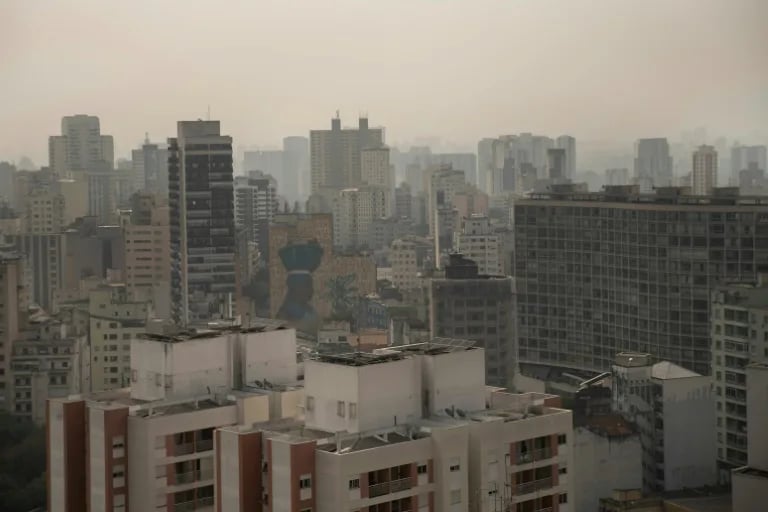Smoke from intense wildfires in the Amazon rainforest and other parts of Brazil was choking major cities, like Sao Paulo and Rio de Janeiro on Monday, and wafting into neighboring countries.
Karla Longo, a researcher at the National Institute for Space Research (INPE), said that satellite images showed that 60 percent of Latin America's largest country had been affected by smoke.
"If we consider the areas affected in neighboring countries and in the Atlantic Ocean, the area affected on Sunday was around ten million km2 (3.8 million square miles)," she added.
Authorities in Argentina and Uruguay reported smoke from Brazil's fires impacting parts of their countries on Monday.
Sao Paulo, the biggest city in Latin America, on Monday topped the ranking of the world's most polluted major cities, according to the air quality monitoring company IQAir.
The rate of fine particles in the air -- a measure of air quality -- reached 69 micrograms per cubic meter, almost 14 times higher than the limit recommended by the World Health Organization (WHO).
Residents of seaside city Rio de Janeiro were grappling with fine particle rates at five times the recommended limit.
Authorities blame human action for most of the recent fires in the country, which are often linked to agricultural activity.
The situation has been aggravated by the country's worst drought in seven decades, which experts attribute to climate change.
Satellite images from the US National Oceanic and Atmospheric Administration (NOAA) showed a thick cloud of gray smoke along the Andes mountain range towards the south of the continent on Monday.
This is due to the "wind that channels the smoke towards the south", meteorologist Estael Sias told AFP.
According to data from INPE, the number of fires in the Amazon since the beginning of the year has almost doubled compared to the same period in 2023.
Other regions of Brazil have been battling terrible wildfires in recent days.
The vast Chapada dos Veadeiros National Park, known for its numerous dramatic waterfalls some 250km outside the capital Brasilia, has lost some 10,000 hectares of vegetation to flames in recent days.
Sias said the situation is not expected to improve "without regular rainfall", which is not likely "before October or November".


















































